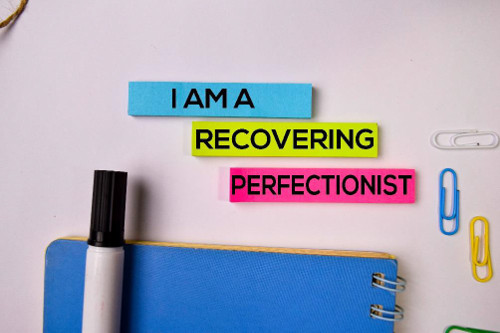by Jan Yager, Ph.D.
Many of you may have read one or more books on time management – maybe even one of mine! – or you have read articles about it, or even attended an in-person workshop or an online webinar. That’s great! But even if you have a basic knowledge about time management, reminding yourself about these seven ways to greater productivity should prove helpful to you. For some of you, this information and approach to managing your time may be new. That’s fine too!
Whatever your starting point, here is what I have observed over the decades I have researched, written about, and conducted workshops on time management that are the seven essentials’ ways to make yourself more productive at work:
1. Prioritize
It’s a cliché that we only have 24 hours in the day, but it is true one. So, you need to decide what you will focus on in any given day. You might even want to focus on what you will accomplish in any given hour! Making a list the night before, I have discovered, can really help you to get a better night’s sleep and to be ready to hit the ground running when you start your next workday.
Your priority task might be the one that your boss or clients have told you needs to be done by a certain deadline. Or it might be something you have decided needs your attention even if it’s not put there by someone else, such as deciding to register for a course to upgrade your skills or spend even an hour during your workday planning an article you want to write for a trade journal to enhance your national and even your global image.
So, what is your #1 priority for today?
2. Set goals.
By setting short- and long-term goals it is easier to tailor your activities to accomplishing those goals. Short-term goals include today’s activities as well as what you want to accomplish this week and even this month.
Long term goals require you to concretize what you want to get done by the end of the year, over the next year, and even in five or ten years. Depending on your age, for example, you might want to retire by 55 or even 65 but what steps do you have to take to make that happen? How much of your current earnings do you have to set aside into a retirement fund? If you plan to retire but you want to stay active and have a new career after that, is there a hobby you currently have that you might want to eventually transform into a second career?
Giving specifics to your goals can help. For example, instead of just having as your goal, “I want to retire from my current job by 65,” have a specific retirement fund amount associate with that goal. “I want to retire at age 65 with $1 million in a retirement fund.”
What is your #1 short-term goal for the next workday?
What is your #1 longer-term goal to carry out by the end of this year?
3. Assess what your time wasters are and eliminate them, one by one.
As I discuss in greater detail in my time management books Creative Time Management for the New Millennium, as well as Put More Time on Your Side, and even in Work Less, Do More, some of the key time waters are procrastination, perfectionism, lateness, doing too much at once, fear or success, and fear of failure, to name a few. Another one is what I used to refer to as the Terrible Twos- Television and Telephone—but now it must be revised to Television (or even Cable), the Internet, and Texting or e-mail.
What is key is for you to figure what your time wasters are. To understand what is causing that time waster and to work on eliminating it, on your own through introspection or reading articles or books, or taking courses, or with the help of a therapist or a coach, if necessary.
that time waster and to work on eliminating it, on your own through introspection or reading articles or books, or taking courses, or with the help of a therapist or a coach, if necessary.
As I discuss in detail in Creative Time Management for the New Millennium, there are emotional time wasters, like perfectionism, that we all must recognize and deal with. Too many think that time wasters are caused by others. I have observed that most time wasters are those that we do to ourselves. (I always say that I want my proofreader or a brain surgeon to be a perfectionist but aiming for excellence rather than an unattainable perfectionism in most other jobs is usually more productive.)
For example, watching some television or cable shows can be relaxing and a convenient and inexpensive escape from work and everyday responsibilities or chores. But too much TV or cable can lead to a life that is much too sedentary as it keeps you more isolated than you would be if you were out in the world, going bowling, grabbing a cup of coffee with friends, or going to a movie with your romantic partner or friends instead of watching at home.
What is your #1 time waster?
What do you think might be causing it?
How will you overcome it?_
4. Practice the “atomic habits” concept that James Clear advanced.
What is this concept? It’s that small changes can lead to major improvements in what we accomplish. For more detailed information on this useful suggestion, read Clear’s bestseller, Atomic Habits.
What habit do you want to break?
What is the “tiny change” as Clear puts it, that you plan to make to begin the process of changing that habit?
5. Practice the “creative procrastination” concept that I advocate as long as you implement it carefully and responsibly.
Years ago, I interviewed the prolific author Isaac Asimov. I asked him how he managed to write several hundred books. He explained that he would have several projects in different typewriters – yes, this was a long time ago! —and if he was blocked on a particular project, he would switch to another one. So, he would finish all the various projects, but it might not be in a straight line.
That concept really resonated with me especially since at times I find myself getting bored with something and wanting to switch to something else. So, the creative procrastination concept that I developed is that when you do switch to something else, which is what most procrastinators do, you now address another priority task rather than doing something frivolous. In that way, you are moving along your priorities, even if it is not in a straight line.
 There is an important caveat to this concept, however. You must finish each of the projects and not allow yourself to have untold numbers of incomplete projects that you started and never completed. (See How to Finish Everything You Start for an in-depth discussion of the causes of undone activities or projects, and what to do about it.)
There is an important caveat to this concept, however. You must finish each of the projects and not allow yourself to have untold numbers of incomplete projects that you started and never completed. (See How to Finish Everything You Start for an in-depth discussion of the causes of undone activities or projects, and what to do about it.)
Ask, and answer, the following questions:
What is the priority task that I am procrastinating on?
What is the alternative priority task that I plan to switch to?
When will I finally finished task #1?
When will I finally finished task #2?
6. Reward yourself and others for everyone’s accomplishments, big and small.
If you are self-employed, you need to find a way to reward yourself when you are accomplishing your priorities and your goals. Make sure the reward you choose is important enough to you to reinforce your increased productivity.
If you work in a company, whether you are a supervisor, CEO, or employee, have regular interactions with those reporting to you so that improvements are noted and areas that need to change are noted. When you give feedback about ways an employee needs to change, however, always start with the positives. When you suggest areas where improvements are required, provide suggestions about how that might be accomplished or at least brainstorm together what steps could be taken to achieve those goals that you mutually agree should be addressed.
What will you reward yourself with for your increased productivity?
7. Aim for work-life balance.
One of the fascinating facts I learned in researching workaholics is that they tend to be people who have poor time management skills. They find, once they start a task, they cannot stop so they keep going often to the exclusion of the relationships that matter in all our lives.
So, make sure that in your quest to be more productive at work that you still make the time for those people and non-work activities, like socializing with family and friends, or participating in sports or community activities, that make for a balanced and happier life.
Jan Yager, Ph.D., is a sociologist, coach, and adjunct associate college professor based in Stamford, Conn., whose 50-plus award-winning books, translated into 35 languages, include Work Less, Do More; How to Finish Everything You Start; Creative Time Management for the New Millennium; 365 Daily Affirmations for Time Management; Making Your Office Work for You; Help Yourself Now, among others. For more information, visit https://www.drjanyager.com.
Stamford, Conn., whose 50-plus award-winning books, translated into 35 languages, include Work Less, Do More; How to Finish Everything You Start; Creative Time Management for the New Millennium; 365 Daily Affirmations for Time Management; Making Your Office Work for You; Help Yourself Now, among others. For more information, visit https://www.drjanyager.com.
Copyright © 2023, 2022 by Jan Yager, Ph.D. If you wish to reprint this article, contact the copyright holder for permission and terms.
An edited version of this article was published in the newsletter OfficeInsight, December 2022 edition, under the title, “Environmental Psychology: Becoming More Productive at Work.”